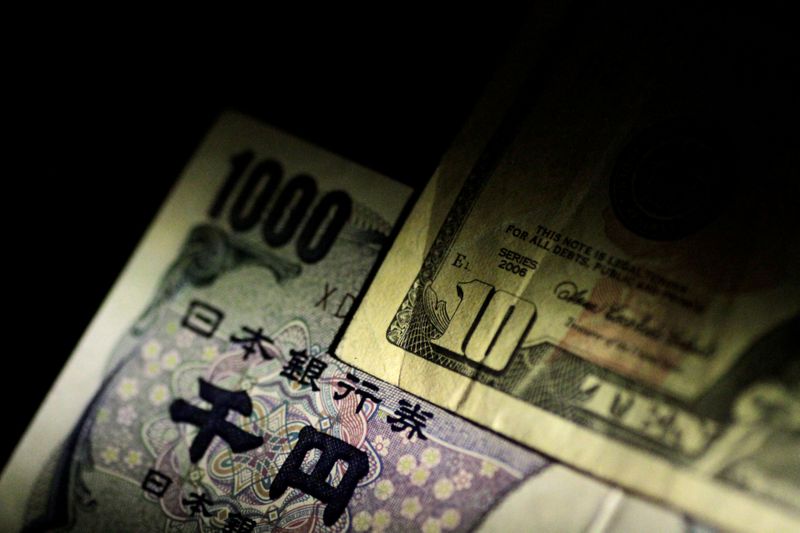By Hari Kishan
BENGALURU (Reuters) - The coronavirus outbreak grabbing the world's attention and which has likely wreaked havoc on its second-largest economy is set to give safe-haven currencies another lift over the coming month, a Reuters poll of market strategists found.
The virus, which originated in China, has left authorities across the globe grappling with how to stop its rapid spread and financial markets in disarray. It was forecast to prop up safe havens like the Japanese yen and Swiss franc by 2% to 3% this month.
It is also set to keep the U.S. dollar, which has dominated most others in foreign exchange markets for around two years, on top into 2020, with half the analysts polled predicting it would last at least six months more.
That lined up with currency speculators, who increased their bets in favour of the dollar for a second week, according to data from the U.S. Commodity Futures Trading Commission.
"As we speak, there is no information suggesting that there has been any sort of peak in the coronavirus. The only information that we've got is that it is spreading to other countries," said Jane Foley, head of FX strategy at Rabobank.
"As long as the news flow is consistent with that, I think it is very likely that the dollar, the yen and Swiss franc will remain well bid and emerging markets will be out of favor."
Analysts said the U.S. dollar index (DXY) - calculated against a basket of six currencies - and the Japanese yen were both likely to gain a maximum of around 3% if the outbreak worsened. The Swiss franc was forecast to strengthen by close to 2.0% against the euro under the same circumstances.
All three are viewed as de facto safe-haven currencies, with the yen and franc the only major currencies to have made any gains against the dollar this year.
Any increase in safe-haven buying usually comes at the expense of emerging-market assets.
After a brief run-up in for riskier risky assets at the start of the year following an initial Washington-Beijing trade deal, the tide has turned again.
A majority of analysts - 46 of 52 - who answered a separate question said emerging-market currencies were at significant risk of weakening over the next three months.
"Emerging markets benefit from low rates and easy money, but they're very vulnerable to significant economic slowdown. In the short term, they are just getting knocked from pillar to post by the virus and by sentiment," said Kit Juckes, head of currency strategy at Societe Generale (PA:SOGN).
"It is clear that the Chinese economy is going to slow, the Chinese are going to use monetary policy and will probably have a period where resource prices - industrial metals and oil prices - are going to be under some pressure. If you're in Latin America, you may think you're closer to America physically, but you are probably closer to China economically."
But demand for safe-haven currencies was not expected to last, with most analysts predicting the dollar would lose against all major currencies over the next 12 months.
The euro (EUR=), the Japanese yen , the British pound and the Swiss franc are forecast to chip away at the dollar's strength over the coming year.
The common currency and sterling were expected to lead the pack by gaining around 4% in a year's time, followed by the yen, which was forecast to gain over 1.5% from here.
While that view has been held for nearly two years, there was a clear shift in the latest poll. Analysts who had repeatedly expected the dollar's dominance to last for six months at least were less confident.
Twenty-two of 50 said the dollar's strength was unlikely to carry on beyond the next six months. The rest said six to 12 months or more than a year.
But the dependence of the global economy on the United States and the dollar's role as the world's reserve currency means any downside is most likely to be limited.
Rabobank's Foley said "there will be inflows from emerging markets and other risky nations into the dollar" in the near term, but when those reverse, she does not expect big moves in the opposite direction either.
"Yes, we've penciled in some slight weakening, or moderate weakening, of the dollar in our 12-month view because of the risk of a U.S. recession. But I don't think those losses are going to be more than moderate."

(Polling by Sujith Pai and Manjul Paul, editing by Larry King)